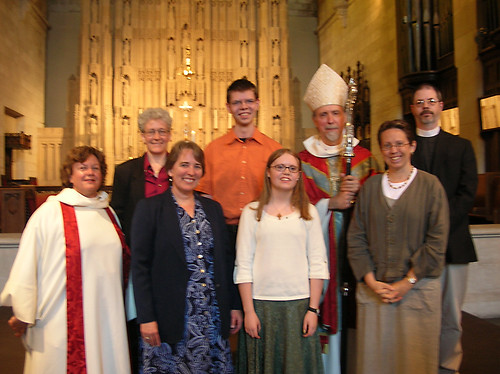This afternoon, Pippa and I will roll down to Midway Airport to pick up Josiah and Margaret. Si will be home for the summer; Margaret is coming home for good, after having been based in Durham for three years.
That’s a pretty weird experience for a married person. Most of the time, once people marry, they live together pretty regularly. Margaret and I set up separate homes almost three years ago so she could study for her theology doctorate at Duke; at this point she’s got her dissertation proposal mostly hammered out, she’s through with her course work. She’s going from strength to strength, and I couldn’t be prouder of her.
Now she’s saying goodbye to friends who have loved and supported her through three complicated years — people who are her friends, who know her for herself. That has been wonderful for her, and it’s very hard to tear up those roots and move back to Evanston (in this way, it’ll be especially good that we’re spending next year in Princeton).
Meanwhile, Pippa and I have learned to manage all right as a two-person family. We have ups and downs — I’m more comfortable with freezer food, Pippa vigorously insists that we cook real entrees, for just one example — but the rhythm has worked out okay. In moments of triumph, I exult that in three years of transition in a young girl’s life, I did not totally mess up as a single parent! Woohoo!
So much great stuff has happened that we’ve managed to keep the edge off the loneliness and frustration of living in different time zones. Now we won’t have that to keep at bay; we can hug, Margaret can rest her head on my shoulder, we can actually help one another with daily life. And we can get back to the marvelous gift of being married, together, finally!
